


The annual Lujiazui Forum, which brings together officials, experts and entrepreneurs, was held in Shanghai on Thursday.
Let's take a look at who attended the financial forum and what they said.
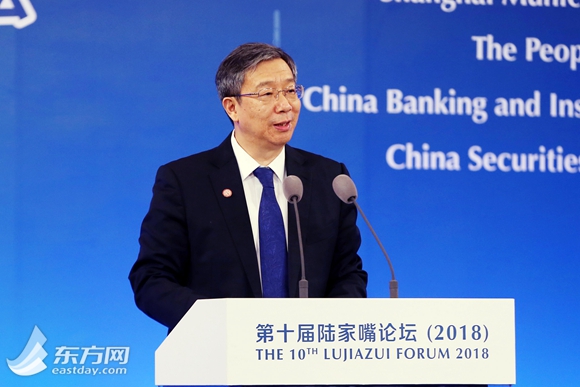
The central bank will significantly increase the relending and rediscount quota targeted at micro and small businesses, PBOC Governor Yi Gang said.
Yi said MSEs play particularly important role in the economy.
“Formal financial institutions must step up financing for MSEs so as to become the mainstay in MSE finance, and private informal players serve as an important supplement,” he said.
Yi also urged relevant authorities to implement a joint mechanism for upholding credibility and penalizing bad faith practices, and crack down on debt evasion and all types of frauds.
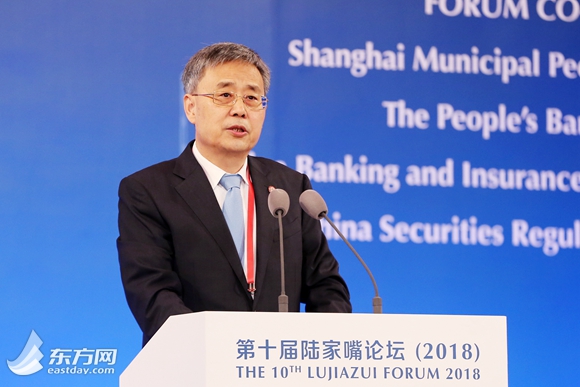
China should make great efforts to identify, warn of and handle financial risks as early as possible so that the risks can be "nipped in the bud", said Guo Shuqing, chairman of the China Banking and Insurance Regulatory Commission.
Financial administrators have prioritized State-owned enterprise and local government deleveraging, Guo said.
During the country's crackdown on illegal fundraising, regulators tried various measures to make investors aware of the fact that high risks are associated with high returns, and that they should be prepared to lose the entire amount of their principal for any investment with an estimated return of more than 10 percent, according to Guo.
"The prevention and mitigation of financial risks is not only a tough battle but also a protracted one," he said.
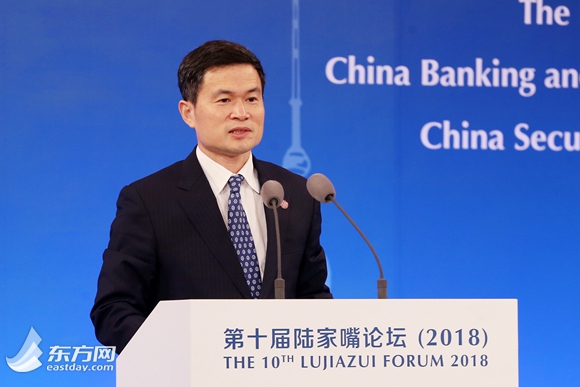
The China Securities Regulatory Commission is studying new mechanisms and tools to increase the A-share market's inclusion rate in the MSCI Emerging Markets Index from 5 percent to 15 percent, said CSRC Vice-Chairman Fang Xinghai.
The securities regulator has also further opened up the capital market as expanding opening-up is vital to its stable and healthy development, he said.
"From the perspective of global competition, China needs an international financial center that has its say worldwide. Unilateral trade and trade protectionism will not last long since the multipolarization of the world economy is now irreversible," Fang added.
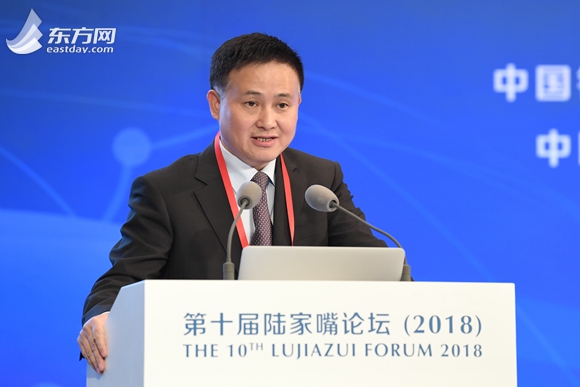
"China will further open up some non-convertible items under the capital account, and those already convertible will see trading more liberalized," said Pan Gongsheng, deputy head of the People's Bank of China.
Two-way openness will be promoted in the financial market, with increasing product supplies such as China Depositary Receipts, Panda bonds and commodity futures, according to Pan, who also heads the State Administration of Foreign Exchange.
Rules on qualified institutional investors will be further improved and the scope of connectivity programs will be widened, Pan said, adding China would support domestic financial institutions to better engage in the international market.
Regulators will debate whether to allow Chinese institutions to enter offshore renminbi markets as well as whether to permit securities and futures firms to conduct cross-border businesses, he said.
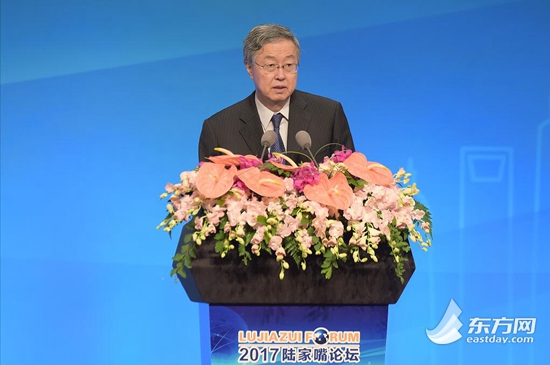
In a welcome speech, Zhou Xiaochuan, former PBOC governor, said that to further promote the development of Shanghai into an international financial center, the Cross-border Interbank Payment System (CIPS) will come to Shanghai soon.
The former PBOC governor cautioned that although the global financial governance has gained great achievements after the global financial crisis that struck in 2008, people cannot be over optimistic. There’s still some work left to be done, and should seize good opportunities because solving problems at the good time will be relatively easy, he said.
Moreover, these problems should be solved timely to prevent next crisis, he added.
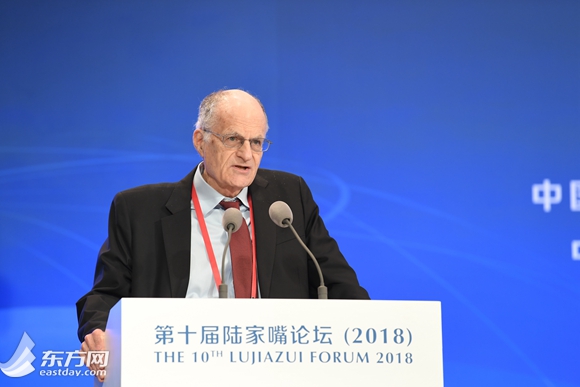
Companies have already started signing contracts in other currencies, said Thomas J. Sargent, a Nobel economic prize winner, in response to a question whether it was a risk for the world to have the US dollar as the only reserve currency
He said the selection of trade currencies is subject to the influence of many competitive forces, including technological evolvement, and the outcome will affect global reserve currencies.
"It is important what the US is doing, but it is more important what other economies have done”, Sargent said.
The key is how companies sign their contracts, and gradually more companies have started to sign contracts in other currencies than the US dollar, he said.
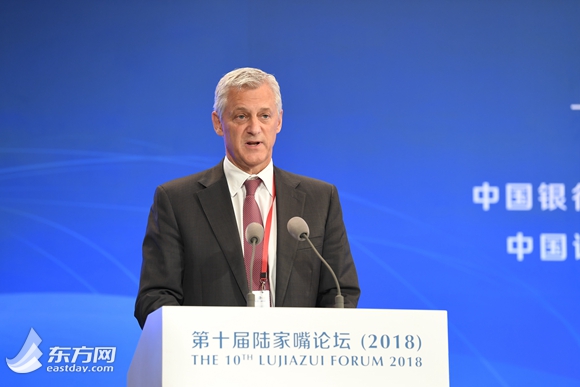
An abnormal credit cycle often brings disastrous outcomes. Ten years have passed since the outbreak of the global financial crisis, it is now time to consider how to strengthen market resilience and improve the regulatory framework to better suit market needs, said Bill Winters, chief executive of Standard Chartered.
He said that financial institutions can serve as lubricant for the flow of capital, products and services.
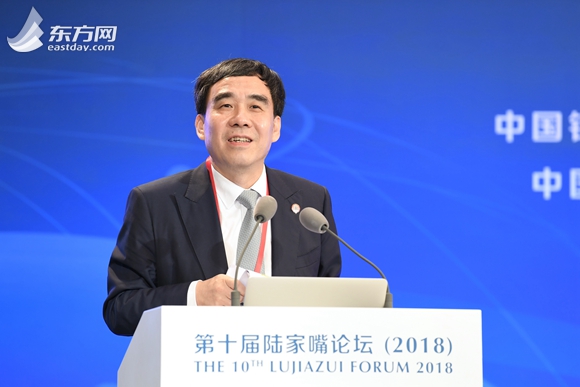
The property market has taken on more and more financial features, which is likely to create social problems, said Tian Guoli, chairman of China Construction Bank.
A large amount of social capital and resources are now allocated to the real estate market, but the market is yet to develop a proper risk management and mitigation mechanism. Real estate financialization violates the basic principle of matching financial risks and benefits, and will continue to push up housing prices, he said.
"We must work hard to emphasize and strengthen the function of ‘living’" of the real estate and actively develop the rental housing market,” Tian said.
If you have any problems with this article, please contact us at app@chinadaily.com.cn and we'll immediately get back to you.